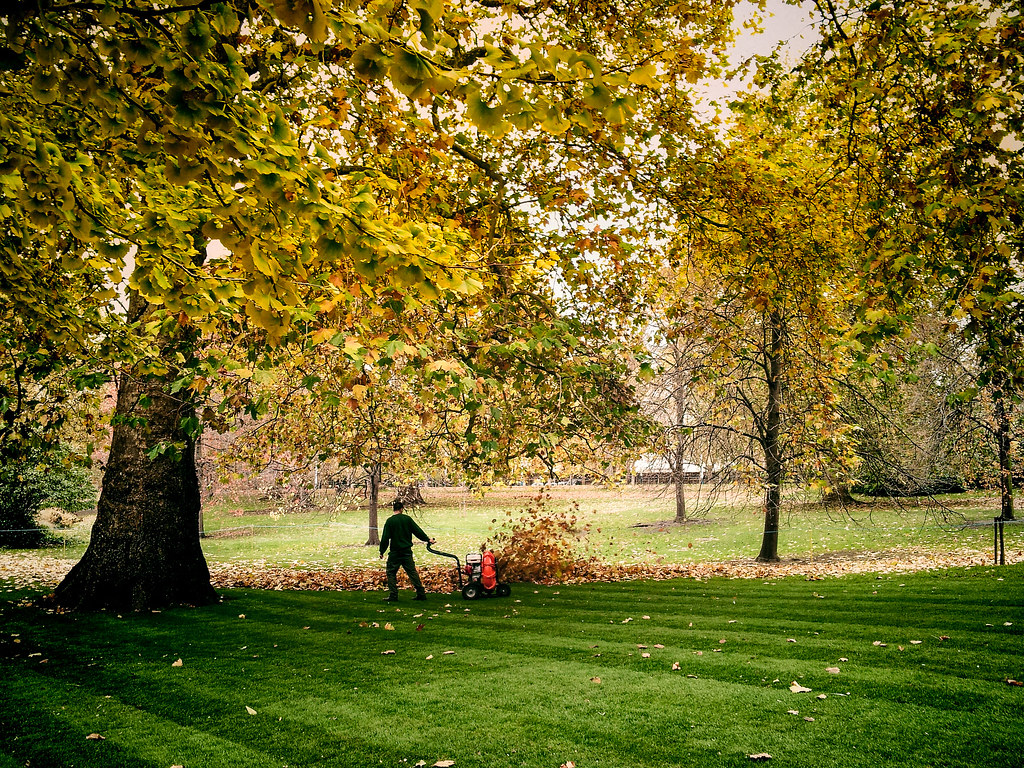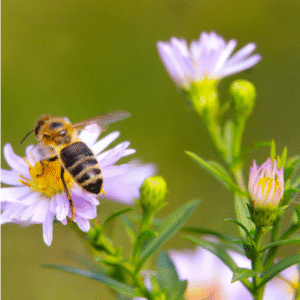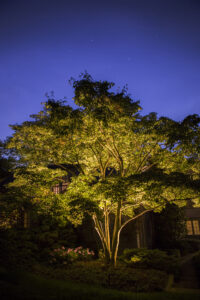Are electric leaf blowers better than gas blowers?
More and more towns and counties are implementing bans on gas leaf blowers including Chevy Chase Village and the Town of Chevy Chase. Noise pollution is often the biggest driving concern for communities deciding to ban gas leaf blowers as noise pollution directly impacts community members. An alternative to gas leaf blowers is electric leaf blowers, which are
powered by a cord or by rechargeable batteries. Not only do electric blowers produce less noise than gas blowers, but their noise is also of a higher frequency than gas blowers. Lower frequency noise travels much further than higher frequency noise and therefore impacts many more people. For this reason, electric blowers create less noise pollution than gas blowers.
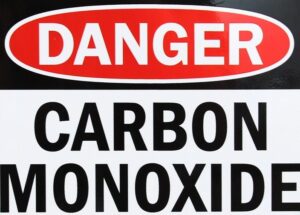
The other main concern around gas leaf blowers is their contribution to air pollution. Gas blowers contribute so much to air pollution because most gas blowers have a two-stroke engine. Two-stroke engines are common in leaf blowers because they weigh less and produce more power than four-stroke engines. However, a two-stroke engine pollutes significantly more as it is fueled by a mixture of gas and oil and its design does not allow for all of this fuel to combust. As a result, it can expel up to one third of its fuel in aerosol particles. It also emits hydrocarbons, particulates, and carbon monoxide. Although less common, there are four-stroke engine blowers which release considerably less pollutants, but the least polluting blower is the electric powered leaf blower which produces no pollutants when it is in use. Even though it does not emit pollutants, the electric powered leaf blower impacts air quality to an extent because it is impossible to avoid stirring up dust and pollen when using a blower.
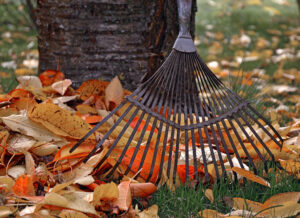
Some people choose to avoid leaf blowing altogether. Raking is the leaf removal method that has the smallest impact on air quality, but it is significantly less efficient than blowing and therefore, only a good course of action for small spaces. Another option is to not remove fallen leaves at all, but to create leaf mulch by mowing over the leaves to chop them up. The smaller pieces of leaves are less noticeable than whole leaves, decay more quickly, and give nutrients to the soil. For those who do not mind the look of fallen leaves in a garden, a great choice can be to just leave the leaves be completely.
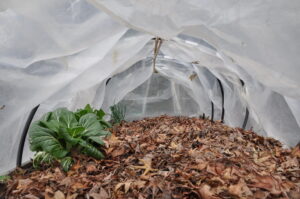
Fallen leaves can create a natural (and free!) mulch that protects perennials during the winter. The layer of leaves can also serve as a habitat for a hugevariety of small animals including many beneficial insects. However, in some circumstances it may be necessary to remove fallen leaves, particularly when fallen leaves are obstructing drainage in a garden. There is no one right answer, but a lot of good options.

